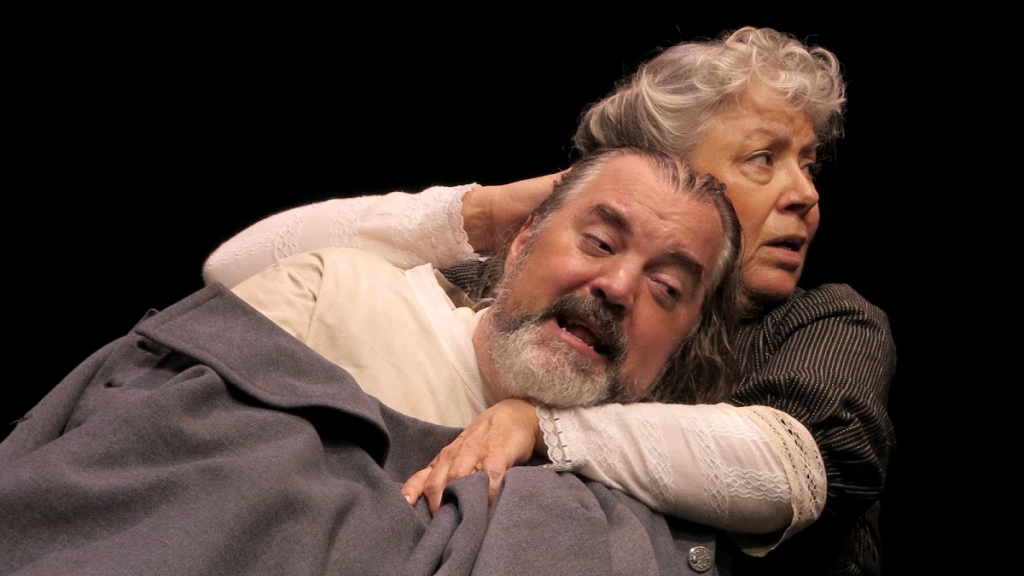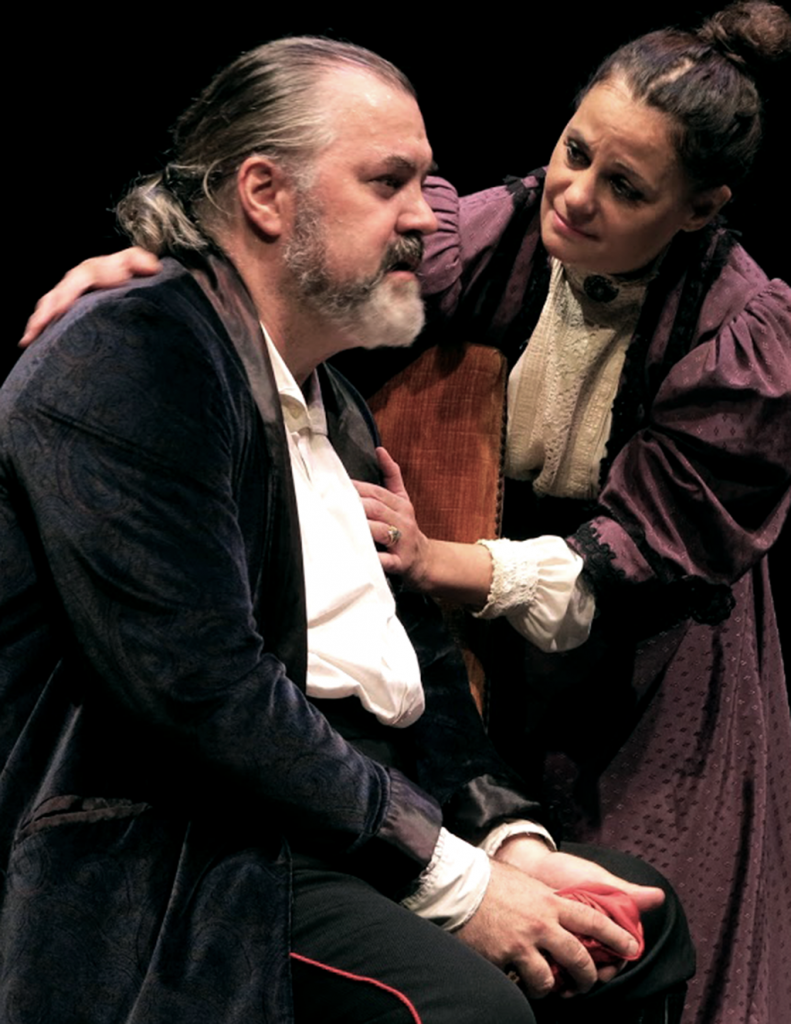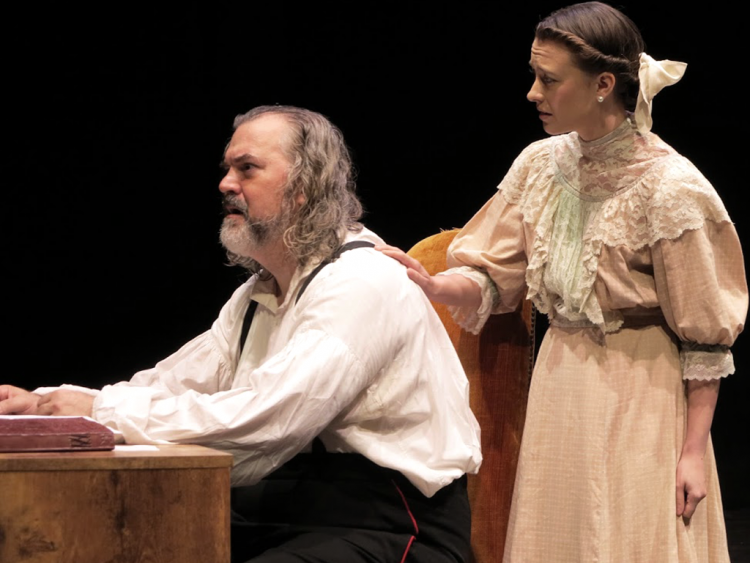There’s a passage in August Strindberg’s autobiographical novel Inferno where the playwright, with a madman’s talent for connecting random dots, builds a vast conspiracy out of a pianist playing Schumann’s Aufschwung in the next room. In The Father, running at Theater for the New City through September 2, that same talent is on brilliant display—this time in the service of art. It’s the difference between genius and madness: The one builds “Coney Islands of the mind,” the other inhabits them.
Everything in The Father is grounds for paranoid suspicion. Even the generic title gains nuance as the story unfolds. What begins as a mundane battle of the sexes—husband and wife fighting over their daughter’s education—quickly mushrooms into doubts over the child’s legitimacy. And the doubts come not through the machinations of some mustache-twirling Iago, but through the wife’s own insinuations, calculated to drive her husband mad with suspicion. It’s the difference between melodrama and psychodrama.
And the wild, psychotic ride runs its course, as Brad Fryman’s terrified Captain vomits up fear and loathing until, exhausted, he reverts to infancy, at which point, in one of the most diabolical scenes in all of literature, his childhood nurse, played by the charming Jo Vetter, sweet-talks him into a straitjacket.

The Captain is a punishing role, physically and mentally, and Fryman does it justice, showing admirable range and clarity of intention. Other cast highlights include his daughter Bertha, played with unerring, playful instinct by Bailey Newman, and Happy, his orderly, whose cheerful indifference to the fate of a maid he may or may not have knocked up sets the roller coaster in motion. Less clear are Toby Miller’s Pastor and Daniel Lugo’s Doctor Östermark, both of whom seem to lack a through line. To be fair, part of the problem lies in the improbable reactions the play demands of them. But even here, a strong choice would work wonders. For example, if the doctor were clearly smitten with the Captain’s wife, it would excuse his blindness to her scheming.
And Laura does little else but scheme. Yet so valiantly does the subtle and suggestive Natalie Menna defend her character that she actually manages to win the audience’s sympathy, even as she drives her husband to suicide and then deprives him of the means to kill himself. Her performance is pitch-perfect, never wantonly cruel, always grounded in an unshakable belief in her right to the daughter she bore and raised.

For all his alleged or admitted misogyny, Strindberg gives Menna the material she needs to defend Laura—up to and including the last word. Her arms wrapped tightly around her daughter, her prize, she declares “My daughter. Mine.” It’s a chilling coda that Ibsen would echo years later at the end of his semi-autobiographical Master Builder, as Hilda, rushing to witness the corpse of a man who literally fell for her, cries: “My master builder. Mine.”
Strindberg, a titan of modern theatre on par with Ibsen, is finally getting his due this side of the pond thanks to Robert Greer, the play’s gifted director and translator. Greer has done an extraordinary service for American theatre, directing eleven Strindberg plays to date. I look forward to more. If Greer is taking requests, the late expressionist works A Dream Play and To Damascus are things devoutly to be wished.
In the meantime, there are still four chances to ride this roller coaster. Like the Cyclone at Coney Island, it’s old and a little rickety, but it will put your heart in your throat. And while you’re at Theater for the New City, check out the other attractions at Dream Up Festival 2019.
The Father is running through September 2 at Theater for the New City. For more information, visit dreamupfestival.org.

